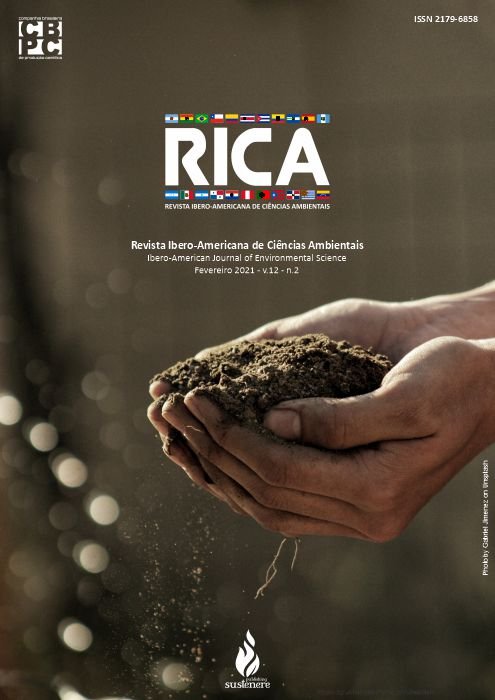Evaluation of the water quality of supply wells in the municipality of Juína, MT-Brazil
DOI:
https://doi.org/10.6008/CBPC2179-6858.2021.002.0031Keywords:
Potability, Groundwater, SeasonalityAbstract
Water is a fundamental element for all living beings, acting directly in the maintenance of ecosystems and the environmental and ecological balance. In Juína, water from wells is commonly used, however, these are often built without adequate technical criteria, making this water more susceptible to contamination. Thus, the present study sought to assess the water quality of supply wells in the Module VI neighborhood, comparing the results with the potability standards established by Ordinance No. 05/2017 of the Ministry of Health. For the collection of samples, the methodology was used proposed in the Standard Methods for the Examination of Water and in two campaigns. The first campaign was carried out in March 2019, a period of high rainfall, and the second campaign was carried out in July 2019, this month of water scarcity in the municipality. Water samples from ten supply wells were randomly distributed in the neighborhood. The parameters analyzed were alkalinity, chlorides, hardness, calcium, pH, electrical conductivity, iron, total and thermotolerant coliforms. For physical-chemical analyzes, digital meters and titrometry were used, respectively, and for microbiological analyzes, the development of bacterial colonies on chromogenic substrate cards (Colipaper) was evaluated. In order to verify the effects of seasonality on the analyzed elements, a completely randomized experimental design was adopted, with two treatments (dry and rainy) and the data of the physical-chemical parameters were compared by means of analysis of variance, at level 5% probability by the Fischer test (Test F). The differences found were compared using the Scott-Knott test at a level of 5% probability and subjected to Pearson's correlation test also at a level of 5% probability. Thus, it is concluded that the population of the Module VI neighborhood, is consuming water outside the drinking standards established by Brazilian legislation, and may directly reflect on the health of the consuming population. The results exposed in this work demonstrate the need to implement mitigation measures effectively as well as the need for continuous monitoring of water quality in the Module VI neighborhood.
Downloads
Downloads
Published
Issue
Section
License
The CBPC - Companhia Brasileira de Produção Científica (Brazil CNPJ: 11.221.422/0001-03) the material rights of the published works. The rights relate to the publication of the work anywhere in the world, including rights to renewals, expansions and dissemination of the contribution, as well as other subsidiary rights. All electronically published works may subsequently be published in printed collections under the coordination of this company and / or its partners. The authors preserve the copyright, but are not allowed to publish the contribution in another medium, printed or digital, in Portuguese or in translation.









